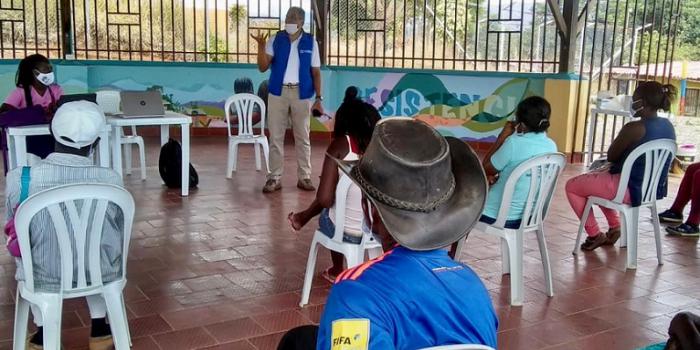
Books to recover ancestral traditions lost by the armed conflict in Cauca
The Río Cauca community council in the municipality of Buenos Aires is working on the preparation of a document on traditional healing knowledge and practices, of their own harmonization and resistance of the community affected by the conflict.

In order to recover the ancestral and traditional practices affected by years of war in Cauca, the Victims Unit works together with the collective reparation subject of Río Cauca community council, the preparation of a book that will allow the community to transfer a large number of activities belonging to their uses and customs, thus strengthening their cultural roots.
This document, which contains everything related to the ancestral and traditional medicine of the community, is part of the actions proposed in the Comprehensive Collective Reparation Plan (PIRC), which lead to the repair of the damages caused to the victims of this territory. in the framework of armed conflict.
The territorial director of the Victims Unit in Cauca, Dan Harry Sánchez Cobo, assured that this process of construction of the document is carried out in an articulated manner with the community council, members of the support group, knowledgeable of the community. "It is a teamwork where not only is the community together with psychosocial professionals, there is also the help of the cooperator Forpaz Giz that allows strengthening the customs that disappeared in the context of conflict", he explained.
For her part, Angela María Rodríguez, belonging to the support group of the community of San Miguel, stated that "these five meetings in which we have worked hand in hand with the Victims Unit is wonderful for us as a community, because we are recovering the tradition of medicine and ancient remedies, letting the new generations know how we use them, thanks to our knowledge”.
These activities, which, as a final result, will have a delivery of 500 books to the community, strengthen the recovery of those practices that were lost or were not carried out by the armed conflict in the region. The document is part of the construction of the collective memory and, in turn, will allow the transmission of that ancestral knowledge from generation to generation.
(End/MVR/LMY)






